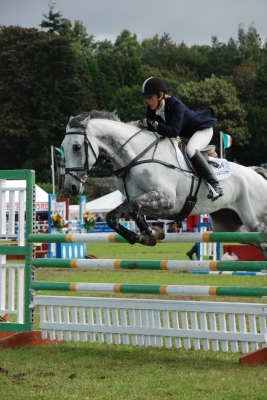Perfectionism and Pacing on the GMAT
Image: Karen Shaw/FreeDigitalPhotos.net
Developing the right balance between perfectionism and pacing can be one of the greatest challenges in preparing for the GMAT. In high school and college, many of us did well by adopting perfectionism as a winning strategy. We studied hard and expected to ace exams, perhaps getting 90+% of the questions right. The GMAT, however, is a different game. It is perhaps similar to competitive horse jumping, in which faults are accumulated for missing jumps or going over the allotted time.
The adaptive nature of the exam is designed to increase the difficulty of questions until you start to miss 30 to 50% of them, so what matters is the difficulty of the questions you get right and wrong. What I advocate is not worrying about the difficulty of the problems but rather getting as comfortable as possible playing a game that requires you alternately unleash and rein in your inner perfectionist.
Missing an easy question hurts your score more than missing a difficult question, and missing three or four questions in a row compounds the penalties. As a result, it’s best to work at a roughly even pace and give each question a fair shot. But because you’ll probably finish some questions in less than the average two minutes or so per question, it’s also essential to use that extra time strategically.
So what’s the maximum amount of time you should spend on any one question? In my opinion, your target max should be somewhere in the 2:30-3:00 zone. The stronger your skills are, the more you may be able to get some questions done in less than two minutes and therefore the more you may be able to flex to 3:00 on some questions. But of course, gauging all of this depends on your ability to know when you’re going overtime – see the discussion of speedwork in the "Cross-Training for the GMAT" post.
Finally, for the verbal section, give added focus to mastering sentence correction. By doing so, you will likely improve your success on sentence correction and get faster at it. As a result, you will open up a little more time to consider the difficult critical reasoning and reading comprehension questions, and thereby improve your performance on those as well.

